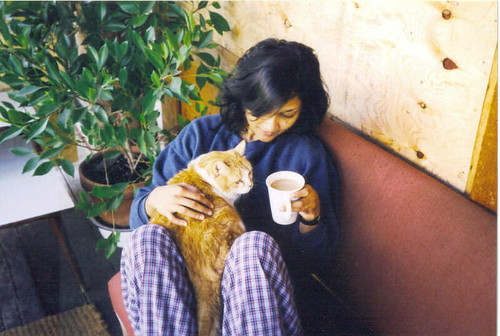Comedy Books
I'm Dying Up Here: Heartbreak and High Times in Stand-up Comedy's Golden Era
by William Knoedelseder
Coherent narration, weaving in the drama and tension, while keeping the characters real and staying objective, is not easy; especially a story about now-famous comedians before they were famous.
However, in I'm Dying Up Here, the author has managed to present a page-turning account of the golden age of comedy, and the events leading up to the strike that ended it all.
Back in the days, if one wanted to be a performing artist, especially theater/stage art, one had to make it in New York City; and for the aspiring stand-up comedian, the place to be was The Improvisation founded by Bud Friedman, a Broadway producer who simply wanted the performers to have a place to get together and exchange tools of the trade.
However, around mid 1970s, there was a mass exodus of comedians from NYC to LA, following Johnny Carson's The Tonight Show moving to Burbank, CA.
Many talented comedians like Jay Leno, Letterman, Dreesden, Lewis moved to L.A. in the hope of making it big. And, the yardscale for success at that time was being invited to perform at The Tonight Show - the only nation-wide stage on TV at that time.
When they get there, they gravitate towards Mitzi Shore's Comedy Store which allows them to try out their material and hone their craft. However, making ends meet is always a challenge and for many of the struggling artists, starvation was a reality. Resentment builds as Mitzi's strict control and non-payment policy begins to seem unfair to the few who went through that system onto a more successful career.
Which led to an organized "strike"/"walkout" that had its own complications. And, thus started the downfall of this cozy system that seemed to have worked for many of the major players we've grown to adore from that era.
Along the way we learn about the nightclub scene and the drug culture prevalent in those days.
All in all, a fantastic read, absolutely well-narrated, full of pathos, and yet somehow larger than life.
[image source: npr.org]
Comedy at the Edge
by Richard Zoglin

Starting with Lenny Bruce, setting up the scene for what was comedy then, the author takes us through the changes and comedy subculture that evolved to its present-day irreverence, all thanks to some wild and crazy guys who dared to do what they wanted to do in the name of stand-up comedy.
Profiling several key comedians of the era like Richard Pryor, George Carlin, Robert Klein, Albert Brooks, all the way out to Jay Leno, Andy Kaufman, Robin Williams, Steve Martin, Jerry Seinfeld et al, we are walked through the gradual changes in the business, and the demands it put on the performers.
Dense with information, the book identifies the shift in focus of the material presented by the comedians - how the changing times influenced what they talked about on stage in an attempt to make people laugh. Starting with stringent socio-political commentary of Carlin's era, to Steve Martin's goofball buffoonery, to Seinfeld's observational comedy, we see how the "Age of Irony" took over the age of emotional rawness...
Drug abuse was accepted, perhaps even expected, to give the performers an edge - how else can Robin Williams excel at his craft day after day, club after club, gig after gig, not slowing down, not running out of energy and material?
Leno and Letterman come out strong in terms of talent, the drive to entertain and the determination to remain drug-free.
[image source: http://www.comedyattheedgebook.com/]
by William Knoedelseder
Coherent narration, weaving in the drama and tension, while keeping the characters real and staying objective, is not easy; especially a story about now-famous comedians before they were famous.
However, in I'm Dying Up Here, the author has managed to present a page-turning account of the golden age of comedy, and the events leading up to the strike that ended it all.
Back in the days, if one wanted to be a performing artist, especially theater/stage art, one had to make it in New York City; and for the aspiring stand-up comedian, the place to be was The Improvisation founded by Bud Friedman, a Broadway producer who simply wanted the performers to have a place to get together and exchange tools of the trade.
However, around mid 1970s, there was a mass exodus of comedians from NYC to LA, following Johnny Carson's The Tonight Show moving to Burbank, CA.
Many talented comedians like Jay Leno, Letterman, Dreesden, Lewis moved to L.A. in the hope of making it big. And, the yardscale for success at that time was being invited to perform at The Tonight Show - the only nation-wide stage on TV at that time.
When they get there, they gravitate towards Mitzi Shore's Comedy Store which allows them to try out their material and hone their craft. However, making ends meet is always a challenge and for many of the struggling artists, starvation was a reality. Resentment builds as Mitzi's strict control and non-payment policy begins to seem unfair to the few who went through that system onto a more successful career.
Which led to an organized "strike"/"walkout" that had its own complications. And, thus started the downfall of this cozy system that seemed to have worked for many of the major players we've grown to adore from that era.
Along the way we learn about the nightclub scene and the drug culture prevalent in those days.
All in all, a fantastic read, absolutely well-narrated, full of pathos, and yet somehow larger than life.
[image source: npr.org]
Comedy at the Edge

Starting with Lenny Bruce, setting up the scene for what was comedy then, the author takes us through the changes and comedy subculture that evolved to its present-day irreverence, all thanks to some wild and crazy guys who dared to do what they wanted to do in the name of stand-up comedy.
Profiling several key comedians of the era like Richard Pryor, George Carlin, Robert Klein, Albert Brooks, all the way out to Jay Leno, Andy Kaufman, Robin Williams, Steve Martin, Jerry Seinfeld et al, we are walked through the gradual changes in the business, and the demands it put on the performers.
Dense with information, the book identifies the shift in focus of the material presented by the comedians - how the changing times influenced what they talked about on stage in an attempt to make people laugh. Starting with stringent socio-political commentary of Carlin's era, to Steve Martin's goofball buffoonery, to Seinfeld's observational comedy, we see how the "Age of Irony" took over the age of emotional rawness...
Drug abuse was accepted, perhaps even expected, to give the performers an edge - how else can Robin Williams excel at his craft day after day, club after club, gig after gig, not slowing down, not running out of energy and material?
Leno and Letterman come out strong in terms of talent, the drive to entertain and the determination to remain drug-free.
[image source: http://www.comedyattheedgebook.com/]
Labels: book review, non-fiction



0 Comments:
Post a Comment
<< Home